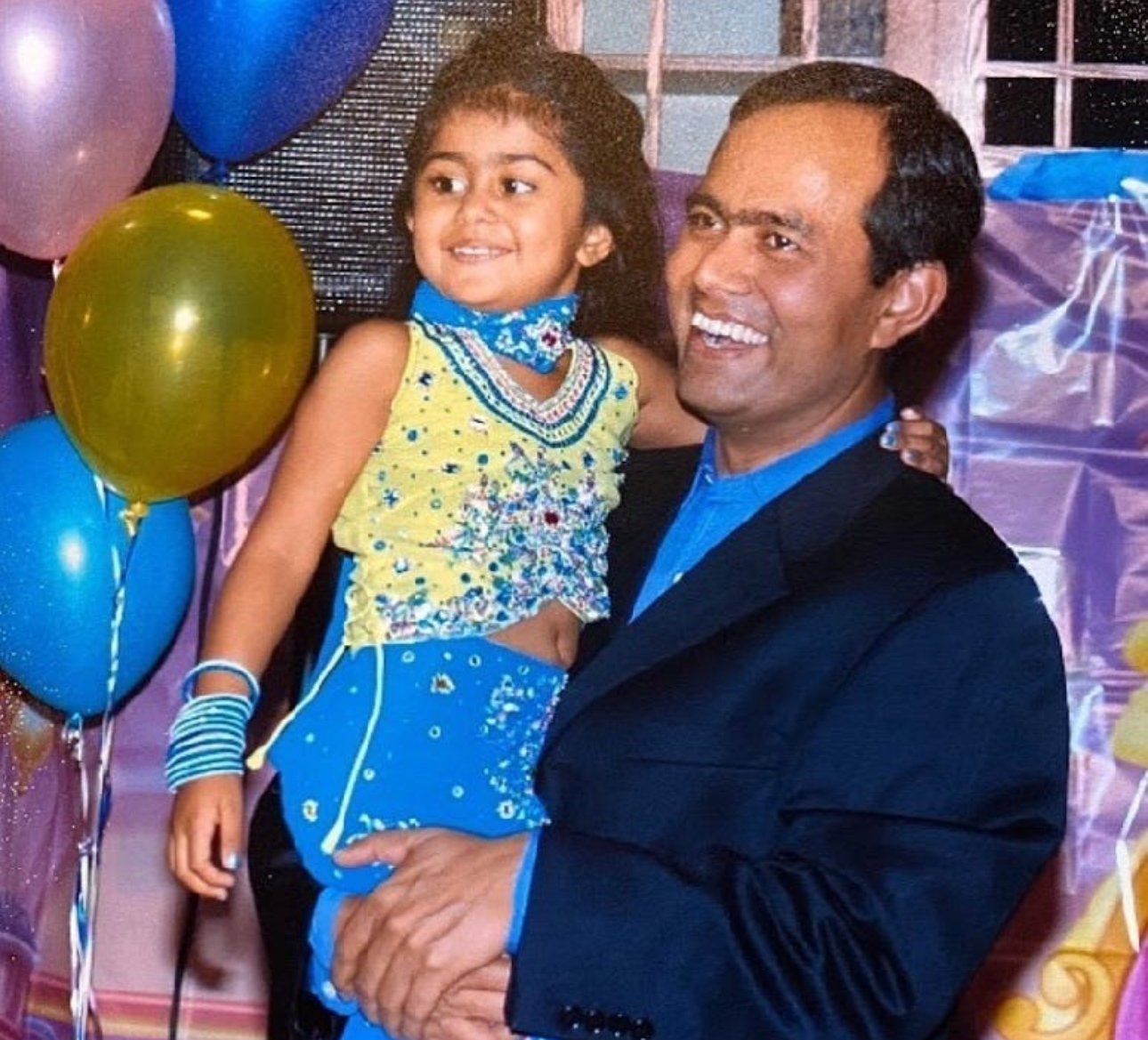The New Era is South Asian
By Néya Sridhar
Young Ashley R. Singh excitedly turned on the TV to watch the new Disney channel show, “Jessie.” She heard that a brown boy of the same race as her was one of the stars of the show.
She went to school the next day, not expecting anything to change.
“Do the funny Indian accent!” a boy said to her. “Aren’t you supposed to be smart because you’re Indian?”
Young Ashley R. Singh with Parents | Photo Given by Ashley R. Singh
“At first it was exciting, even just to see someone brown. As a kid, I would laugh and enjoy it,” Ashley now explained. “Looking back with the knowledge I now have, I realize that these stereotypes are racist. They confine us to a box and create false representations of us that are degrading. Kids saw these stereotypes about us and pushed them onto us, but they didn’t know anything else about us brown people.”
Ashley Singh is a 22-year-old content creator from Naperville, IL. She graduated from UW Madison with a degree in Industrial Engineering and a minor in Entrepreneurship. She recently relocated to Los Angeles to work for a tech company, create more content, and dip her toes in acting.
During the beginning of COVID-19, Ashley’s sister convinced her to post a comedy skit on TikTok.
If Ashley had been at in-person school, the fear of people judging her would have held her back. But something about being alone and quarantined made her think, “Fuck what people say.”
The skit, “Types of Brown People at Parties,” went viral.
Ashley now has 295.8 thousand followers and 16.4 million likes on TikTok.
Ashley R. Singh Magazine Feature | Photo By Ashley R. Singh
To become more relatable, Ashley is now trying to switch gears with her content. “I think before, my content was for South Asians by a South Asian,” she said. “Now, I am trying to elevate it for a more immigrant experience and show how Indians can be.”
A common stereotype about South Asian parents is that they are extremely strict and conservative.
“Sure my family follows stereotypes, but my mom wears shorter skirts than me and she tells me to go wear them too. Making videos with her really showed me and others how brown parents can be liberating, exciting, have personality, and let us be who we want to be,” she expressed.
This fame and creative freedom, however, did not come easy. Ashley had to learn to navigate through negativity at the start of her content creation. “The first hate comment I said “kill yourself,” which was very extreme,” she remembered.
“I’ve talked to other content creators and they stand by this. When you see one negative comment, it equates to 100 positive ones. It shouldn’t have the same weight.”
Hate, in forms such as microaggressions and stereotypes towards South Asians, has been normalized. “In India, being North Indian is the standard. South Indians are not only shit on in other countries but also in their own country.”
“Where do we win?” Ashley said.
South Indians have features such as dark skin, thick hair, big eyes, and big lips. Due to colorism and racism in India, South Indians are not appreciated for their beauty.
Western media is only now starting to represent South Asians. However, this representation is still not up to the standards.
Ashley comments, “When there’s a role on screen, I’m waiting for a day when the person’s personality is not being brown, but they just happen to be brown.”
People are finally getting used to the idea that South Asians can be in creative spaces. “We are talented, skilled, and opening doors that have never been opened before. It’s going to be uncomfortable, but people are accepting it,” she voiced.
“Double Disappointments” Podcast Launch | Photo Given by Ashley R. Singh
We now have A-list-rated films and TV shows starring South Asians, without portraying them as their stereotypes. Some examples include Maitreyi Ramakrishnan from “Never Have I Ever,” Avantika from “Mean Girls,” Aryan Simhadri from “Percy Jackson and the Olympians,” and Simone Ashley from “Bridgerton.”
“People are making comments such as, ‘Avantika is such an it girl.’ It feels so good for our beauty to finally be appreciated. In the old ‘Mean Girls,’ obviously Karen was white. But now, people are seeing that Avantika played the character so well,” Ashley said.
“At the end of the day, it’s just about being human and being a character. It doesn’t matter what skin color you are.”
The battle that South Asians face to be treated and respected equally in Western media is one that is ongoing. However, progress has been made.
Ashley expresses, “Being brown and being proud of being brown is so important. It’s the era of being South Asian.”
“People gotta be ready for it.”




